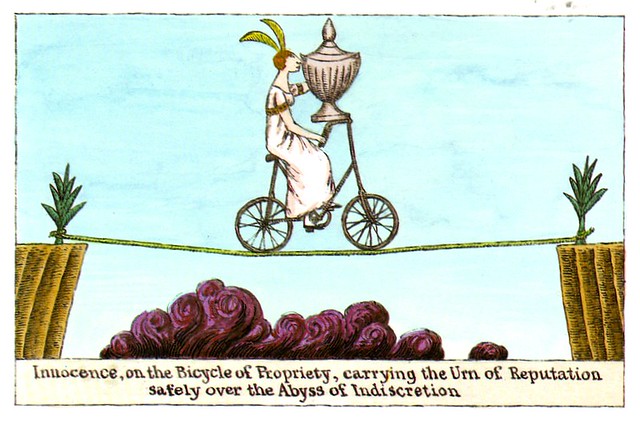
303.7K
Downloads
447
Episodes
New for 2023: Victorian Poetry Scroll back for previous courses on Shakespeare, Eighteenth Century Poetry, Close Reading, Various film genres, Film and Philosophy, the Western Canon, Early Romantics, 17th Century Poetry, etc.
Episodes

Sunday Mar 11, 2012
Mont Blanc continued: Brain or Sky
Sunday Mar 11, 2012
Sunday Mar 11, 2012
[close reading] The question of what the poem's about becomes mapped into the question of whether the poem subsumes the mountain or the mountain the poem. If the poem is about the mountain, it, the poem, is still master. But if the poem can't manage to capture and communicate the mountain, then it isn't: it's about its own defeat as the mountain pierces the infinite sky. Comparison, again, to DIckinson's "sky" in "The Brain is wider than the Sky." Quick mention of the difference, in that poem of syllable and sound. God would be just a sound, the natural world, but the difference the brain might make in turning sound into syllable is the difference that imputing meaning makes. If the mind imputes meaning, then the home of meaning is in the mind.

Friday Mar 09, 2012
Songs from the Plays: Nashe, Kenneth Koch, Daniel
Friday Mar 09, 2012
Friday Mar 09, 2012
[Renaissance Poetry] Nashe's litany, brightness falls from the air. Excursus on the poetic purity of the out-of-context: Browning; Kenneth Koch's "Songs from the Plays." Daniel's La Corona anticipations, and his graceful bow to Sidney and Spenser in "Musophilus" [3/6/12]

Friday Mar 09, 2012
Mont Blanc: which is to be master
Friday Mar 09, 2012
Friday Mar 09, 2012
[closer reading] Mont Blanc in earnest: the two possible meanings or subjects of the first stanza (adverting mind, commanding mountain): the struggle between the mountain and the mind to determine which will be the metaphor for which. (3/7/12)

Wednesday Mar 07, 2012
More on Astrophel and Stella; then some Shakespeare
Wednesday Mar 07, 2012
Wednesday Mar 07, 2012
[renaissance poetry] More on Astrophel and Stella, especially the fourth song; also some attention to Shakespearean sonnets.

Wednesday Mar 07, 2012
Paradise Lost, The Intimations Ode, Mont Blanc
Wednesday Mar 07, 2012
Wednesday Mar 07, 2012
[close reading class] How Wordsworth used Milton (with reminders about Harold Bloom): comparisons with Book 3 of Paradise Lost; "Methought I saw my late espoused saint" and "Surprised by Joy"; the first lines of Shelley's Mont Blanc.

Sunday Mar 04, 2012
Last class on the Intimations Ode
Sunday Mar 04, 2012
Sunday Mar 04, 2012
[Close reading 3/1/12] Against all odds, we finish the Intimations Ode. On to Mont Blanc!

Friday Mar 02, 2012
Continuing on with the Intimations Ode
Friday Mar 02, 2012
Friday Mar 02, 2012
[Close reading, 2/29/12] We continue onwards with the Intimations Ode, and the consideration of the child as the best philosopher but also at strife with its own blessedness. Whence the joy that Wordsworth declares?

Friday Mar 02, 2012
Astrophel and Stella, part 2
Friday Mar 02, 2012
Friday Mar 02, 2012
[Renaissance poetery 2/29/12] Sidney's sophistication. The sestina form. More of the events of Astrophel and Stella. To be concluded next week.

Thursday Mar 01, 2012
First class on Astrophel and Stella
Thursday Mar 01, 2012
Thursday Mar 01, 2012
The plot of Astrophel and Stella: what is its back story, and what can we infer?

Tuesday Feb 28, 2012
Tuesday Feb 28, 2012
[Close reading class] A general discussion of how Southey, Wordsworth, and Coleridge each became a Tory at / last, and on freedom of the soul in general. Return to the Intimations Ode at the end of class.

Tuesday Feb 28, 2012
Vacation bonus: talk at UCLA
Tuesday Feb 28, 2012
Tuesday Feb 28, 2012
[Note: a minute or two at the beginning and end are just crowd walla: couldn't get GarageBand to cut those snippets off.] A talk at UCLA during the February vacation. Mainly on Milton and the relation of justice and the justice of the fact that we can judge what is just to narrative and vindication in Paradise Lost and Samson Agonistes, with some more general remarks on Kant and others.

Friday Feb 17, 2012
Wordsworth reboots the Intimations Ode
Friday Feb 17, 2012
Friday Feb 17, 2012
[Close reading] After the dead end of his attempt to recover the Visionary Gleam, Wordsworth gives up the Intimations Ode for a couple of years. Then he reboots, imagining a different source for the clouds of glory that he saw in youth, since "Our birth is but a sleep and a forgetting." We begin considering this new, Platonic perspective.

Thursday Feb 16, 2012
Southwell and Marlowe - 2.13.12
Thursday Feb 16, 2012
Thursday Feb 16, 2012
[Note: I am podcasting two classes this semester. The shorter podcasts are from the close reading course; the longer ones, e.g. this one, are from the Renaissaince lyric course] We look at what makes Southwell's "Burning Babe" work, and what doesn't: students defend the poem; and we look at some particularly gorgeous passages from Marlowe's "Hero and Leander." Last class before vacation.

Thursday Feb 16, 2012
The Intimations Ode proper - 2.13.12
Thursday Feb 16, 2012
Thursday Feb 16, 2012
[Note: I am podcasting two classes this semester. The shorter podcasts are from the close reading course, e.g. this one; the longer are from the Renaissaince lyric course] We begin going through the Intimations Ode, after pausing (natch) to consider its motto from "My heart leaps up." Some consideration of the crisis lyric, following on from Frost's Birches.

Saturday Feb 11, 2012
Heavy as Frost 2-9-12
Saturday Feb 11, 2012
Saturday Feb 11, 2012
Finally, a reading of Frost's Birches. Metaphor: tenor and vehicle. Relation to the Intimations Ode. The poem as a version of climbing birches and returning. The idea of the crisis lyric, of a poem as a way to think things through.

Friday Feb 10, 2012
Some moments from the Faerie Queene 2-8-12
Friday Feb 10, 2012
Friday Feb 10, 2012
Some passages from The Faerie Queene, particularly Mutablitie and the Bower of Bliss. Question of relation of classical mythology to Christianity. Typology and the fourfold principle of interpretation discussed.

Friday Feb 10, 2012
Versions of the Intimations Ode
Friday Feb 10, 2012
Friday Feb 10, 2012
Bloom's ideas of poetic vocation. The Intimations Ode as everyone's vocation. Demonstration of the sense of poetic vocation through a consideration of Yeats's Circus Animal's Desertion. Wittgenstein on feelings.

Wednesday Feb 08, 2012
A desultory class on Spenser 2/6/12
Wednesday Feb 08, 2012
Wednesday Feb 08, 2012
Most people hadn't done the reading, so this is a desultory (root meaning: jumping around) class on Spenser, the aim being to give them some sense of what he's doing. We look briefly at the Epithalamion, at the Amoretti, and at the last two stanzas of the Mutabilitie Cantos.

Wednesday Feb 08, 2012
Poetry and the personification of Love - 2/6/12
Wednesday Feb 08, 2012
Wednesday Feb 08, 2012
Poetry's fictional addressee is the personification of Love. When Love leaves, Love is abandoned. A character only in literary space: a character who can only be fictional, which is what makes the personification so sad. That's what's going on in Bishop, Shelley's "When the Lamp is Shattered" and Yeats's "When you are old." NB: I think that I come close to being able to say what I mean here.

Saturday Feb 04, 2012
The burning boy: Metaphor and personification 2-2-12
Saturday Feb 04, 2012
Saturday Feb 04, 2012
Love as the burning boy in Bishop's "Casabianca": metaphor and personification. Metaphor vs. simile. Pound's haiku like poem. The background in Southwell's high conceit in his "The Burning babe." Freud and the dream of the burning child. Love personified when all that's left of the desired other is the personified desire for the other: like her as another to who somehow is adequate to our passionate gried; like ourselves for the same reason, and neither of us, but rather the thing lost and returning to lament its loss. Yeats's "When you are old": her face, Love's face.

Thursday Feb 02, 2012
Two poems of Surrey: "The Soote Season" and "Ye Happy Dames"
Thursday Feb 02, 2012
Thursday Feb 02, 2012
Two of Henry Howard, Earl of Surrey's poems. Violation of Petrarchan convention in "The Soote Season." How its rhymes work. "Ye Happy Dames" and the poetry of absence.

Thursday Feb 02, 2012
More on Blake's speakers and Bishop's version of Casabianca 2/1/12
Thursday Feb 02, 2012
Thursday Feb 02, 2012
Who organizes the voices organizing voices in the Songs of Innocence and of Experience? How does Bishop make us of Hemans's "Casabianca"? Digression on enjambment. Bishop's "Casabianca" as a love poem. Student reading of three wonderful "Songs of Experience" responses to Hemans.

Tuesday Jan 31, 2012
Some versions of Petrarch and the allegory of love
Tuesday Jan 31, 2012
Tuesday Jan 31, 2012
Petrarch performed, and Wyatt and Surrey's translations. The nature of translation for Wyatt: the estrangement that he himself allegorizes and embraces under the name of Love. Digression on allegory, via Edward Gorey:


Tuesday Jan 31, 2012
More on Blake and the play of voices in his poems
Tuesday Jan 31, 2012
Tuesday Jan 31, 2012
A quick retrospect of the play of voices in the Nurse's songs, then most of the class on the two versions of the Chimney Sweeper, with attention to the difference between Blake as presenter of these poems and their first person singer.

Sunday Jan 29, 2012
Close reading: the Nurse's Song from Songs of Experience 1-26-12
Sunday Jan 29, 2012
Sunday Jan 29, 2012
How the Nurse's Song differs in the Songs of Experience. Polyphanic voices. Who the real speakers are, in both versions.
